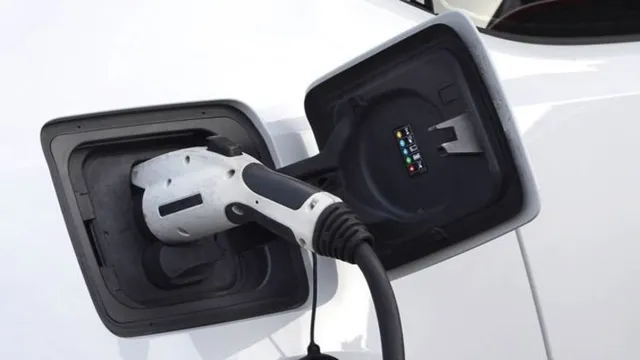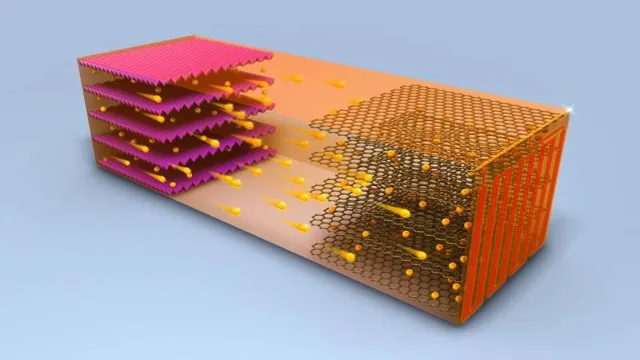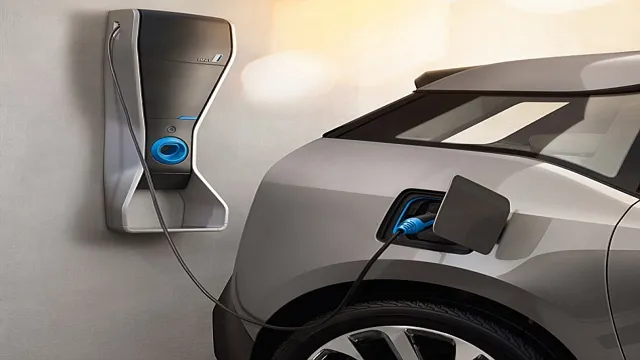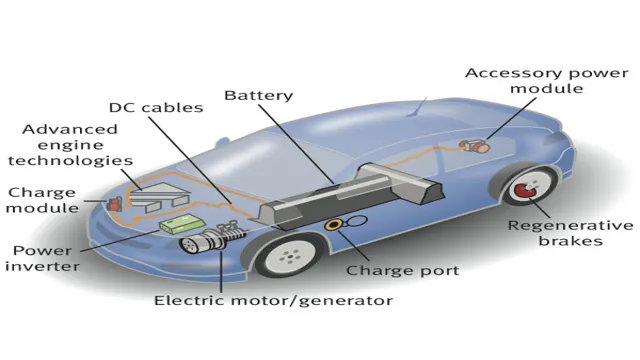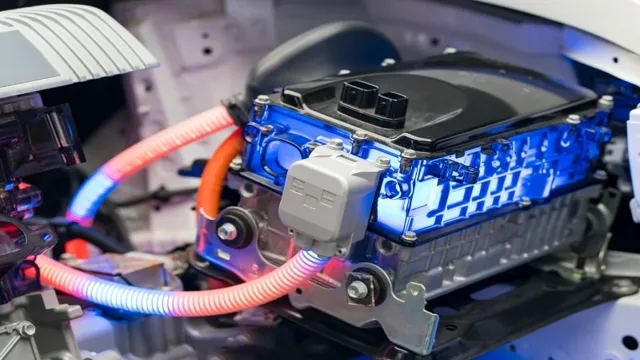Revolutionizing Electric Cars: Unveiling the Latest Breakthrough in Battery Technology
Electric cars have fast become one of the most talked-about factors in the automotive industry due to the push for a cleaner environment, energy efficiency, and the desire for more sustainable means of transportation. Electric vehicles, at their core, rely on electric car batteries as the main source of power. But what does the future hold for these batteries? Will they still be the same a decade from now, or will better versions emerge? As electric cars have become more popular, more and more investment has been put into developing superior car batteries.
In this article, we will dive into the future of electric car batteries to help you understand the latest developments and how they may impact our daily lives.
Current State of Electric Car Batteries
The race to develop the next big battery technology for electric cars is in full swing, with a number of promising options being explored. One of the most exciting is the solid-state battery, which replaces the liquid or gel electrolyte found in traditional lithium-ion batteries with a solid material. This makes them safer, more efficient, and potentially cheaper to produce.
Another option is the lithium-sulfur battery, which has a higher energy density than traditional lithium-ion batteries and could allow electric cars to travel further on a single charge. Other technologies being developed include zinc-air batteries, which could be cheaper and more environmentally friendly than other options. Whatever the future holds, it’s clear that battery technology is evolving rapidly, and electric cars will only become more practical and affordable as a result.
Lithium-Ion Batteries
Lithium-Ion Batteries When it comes to electric cars, the battery is the most critical component. Lithium-ion batteries are the current standard for electric vehicles due to their high energy density and long life. However, battery technology is continually evolving, and newer options are on the horizon.
Despite significant progress in recent years, the current state of electric car batteries still has some drawbacks. For instance, they are costly and heavy, making it difficult to build cheaper and more efficient electric cars. Additionally, the production process of these batteries can be environmentally hazardous, and the components are not always easy to recycle.
Nevertheless, manufacturers are making significant strides in developing improved battery technology, and there is a growing demand for greener and more sustainable transportation. In the near future, we can expect to see more innovative and eco-friendly battery solutions, which will undoubtedly change the face of the automotive industry for the better.

Solid-State Batteries
Solid-state batteries are the latest technological advancement in the field of electric car batteries. Compared to traditional lithium-ion batteries, solid-state batteries offer many advantages, including a higher energy density, faster charging times, and increased safety. Although they are still in the development stage, companies such as Toyota and Volkswagen have invested heavily in solid-state battery research.
Some analysts believe that these batteries may become the norm for electric vehicles in the near future. Solid-state batteries use a solid electrolyte instead of a liquid one, which eliminates the risk of fire and explosion that has plagued lithium-ion batteries. However, the manufacturing process for solid-state batteries is still expensive, and there are still technical challenges to overcome.
Nonetheless, the potential of this technology is clear, and it represents a significant step forward in the development of electric car batteries.
New Battery Technology
Electric cars have come a long way since their inception, but one of the biggest hurdles has always been battery technology. However, recent developments are making it easier to drive long distances without the fear of losing power. One of the new battery technologies for electric cars is the solid-state battery.
These batteries use a solid electrolyte, rather than the liquid electrolyte used in traditional batteries, to transfer electrons between the two electrodes. This provides several benefits, such as higher energy density, faster charging times, and longer lifespan. Additionally, these batteries are safer as they do not have a flammable liquid electrolyte.
The solid-state battery technology is still in development, but it is a promising advancement that may change the game for electric vehicles in the near future. So while the current limitations of traditional batteries may have deterred you from buying an electric car in the past, the new solid-state batteries may offer a solution in the near future!
Silicon Anode Batteries
Silicon anode batteries are quickly becoming the new go-to technology for high-performance batteries. This is due to the fact that they have the potential to offer much higher energy densities than traditional lithium-ion batteries, which means they can store more energy in the same amount of space. Silicon is also more abundant and cheaper than some other materials traditionally used in batteries, which makes it a much more attractive option for battery manufacturers.
Additionally, these batteries are more efficient, leading to longer running times and less need for frequent charging. While there are still some challenges to overcome before these batteries become the norm, there is no doubt that their potential is causing a stir in the battery industry.
Lithium-Sulfur Batteries
Lithium-sulfur batteries are the latest buzz in the energy storage market, due to their high energy density potential and low costs. Compared to traditional lithium-ion batteries, which use graphite as an anode, lithium-sulfur batteries utilize sulfur which is abundant, inexpensive and environmentally friendly. Sulfur has higher energy density than graphite resulting in the potential to store more energy per unit weight.
Despite their promise, lithium-sulfur batteries are still facing several challenges, such as potential for solubility, short cycle life, and discharge issues. Engineers and scientists are currently working on developing strategies to overcome these challenges and bring lithium-sulfur batteries to the market. Should they succeed, the potential impact on the energy storage market could be tremendous!
Metal-Air Batteries
Metal-air batteries are a rising star among renewable energy storage technologies. Unlike standard lithium-ion batteries, these innovative cells use metal and oxygen to create electricity. The metal is generally zinc, aluminum, or lithium, while the oxygen comes from the ambient air.
When these two elements react within the battery, they release energy that can be used to power a device or store for later use. Not only are metal-air batteries more energy-dense than conventional lithium-ion cells, but they are also more environmentally friendly as they do not contain any hazardous chemicals. This makes them the perfect choice for a variety of applications, from electric vehicles to grid-level power storage systems.
Although still in the early stages of development, metal-air batteries show great promise for the future of energy storage, and their potential cannot be underestimated.
Benefits of New Battery Technology
What is the new battery technology for electric cars? The new battery technology for electric cars is an exciting development that promises a number of benefits. One of the most significant benefits is increased range. The new batteries are designed to provide a longer driving range than their predecessors, which means you can travel farther on a single charge.
Additionally, the new batteries are more durable, which means they last longer and require less maintenance. They’re also more efficient, which means you get more power for the same amount of energy. Finally, the new batteries are more environmentally friendly, as they produce less pollution and require fewer natural resources to manufacture.
All of these benefits are exciting news for anyone interested in electric cars and the future of sustainable transportation.
Extended Range
With the advent of new battery technology, we can expect an extended range in our electric vehicles. This means better performance and longer-lasting batteries that can take us farther on a single charge. In addition to providing more convenience for drivers, this technology also has significant environmental benefits.
As we shift towards a more sustainable future, electric vehicles are becoming increasingly important, and this new battery technology will help to make them even more viable. This technology is also expected to have a positive impact on the cost of electric vehicles, making them more affordable to a larger number of consumers. It’s an exciting time for the future of transportation, and the benefits of this new battery technology are just the beginning.
Lower Cost
One of the most significant benefits of new battery technology is its ability to lower costs. Traditional batteries can be expensive to produce and dispose of, making them a less practical choice for many applications. However, modern batteries are designed with cost in mind, using materials that are more affordable and readily available.
This makes them ideal for a variety of industries, from transportation to consumer electronics. In addition, new battery technology is more efficient, providing longer-lasting power and reducing the need for frequent replacements. This improved lifespan not only saves money but also reduces waste, making it a win-win for both consumers and the environment.
With lower costs and improved efficiency, new battery technology is set to revolutionize the way we power our devices and move towards a more sustainable future.
Conclusion
In conclusion, the new battery technology for electric cars is a game-changer in the world of green transportation. It’s like swapping your old flip phone for the latest iPhone, but instead of just upgrading your device, you’re upgrading the entire planet. These new batteries are smaller, lighter, and have a longer lifespan, which means they can power electric cars further and faster than ever before.
So, if you’re looking for a way to reduce your carbon footprint and zip around town in style, it’s time to invest in an electric car with this cutting-edge battery technology. Your wallet and the environment will thank you.”
FAQs
What is the new battery technology for electric cars?
The new battery technology for electric cars is solid-state batteries, which use solid electrolytes instead of liquid ones.
How do solid-state batteries differ from traditional lithium-ion batteries?
Solid-state batteries have several advantages over traditional lithium-ion batteries, including higher energy density, faster charging times, and improved safety because they are less likely to catch fires.
When will solid-state batteries be available in electric cars?
Solid-state batteries are still in the research and development stage, and they are not expected to be available in electric cars until the mid-2020s.
What companies are working on solid-state batteries for electric cars?
Several companies, including Toyota, BMW, and Volkswagen, are investing heavily in the development of solid-state batteries for use in their electric cars. Other companies, such as QuantumScape, are entirely focused on developing solid-state batteries.
